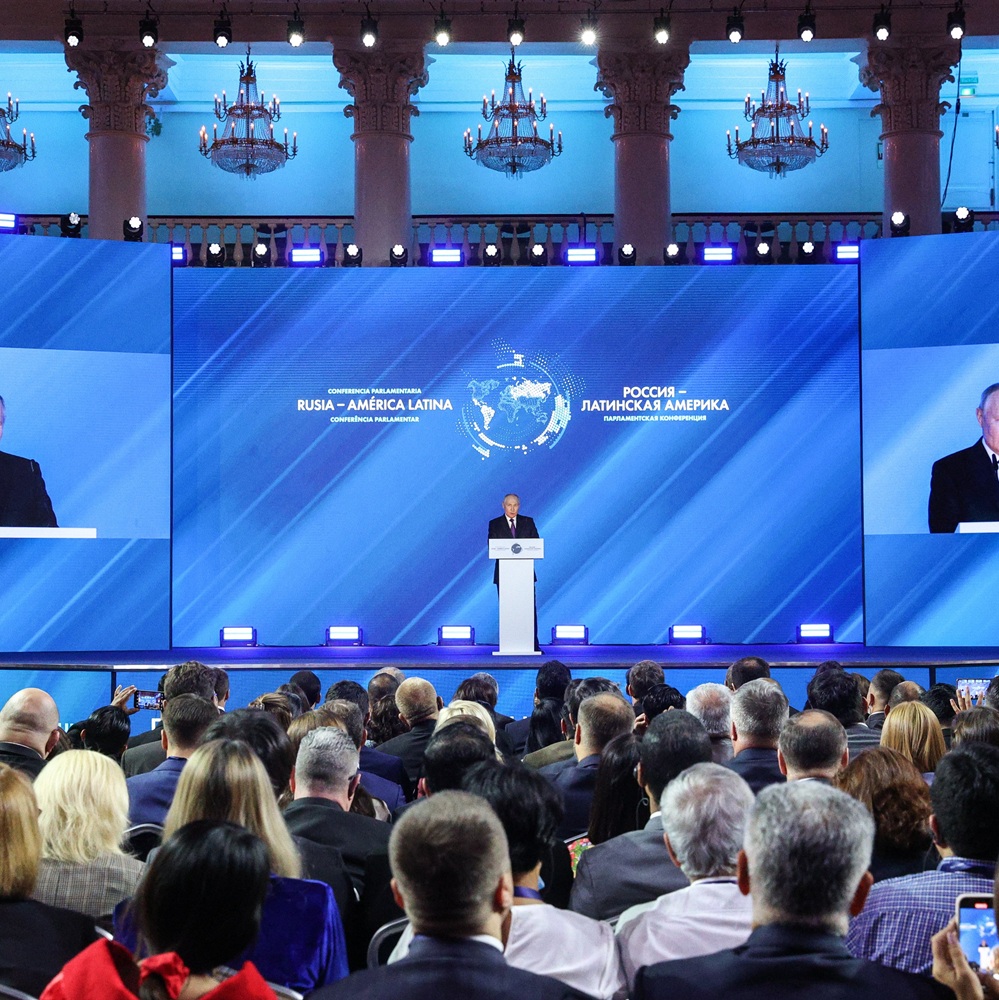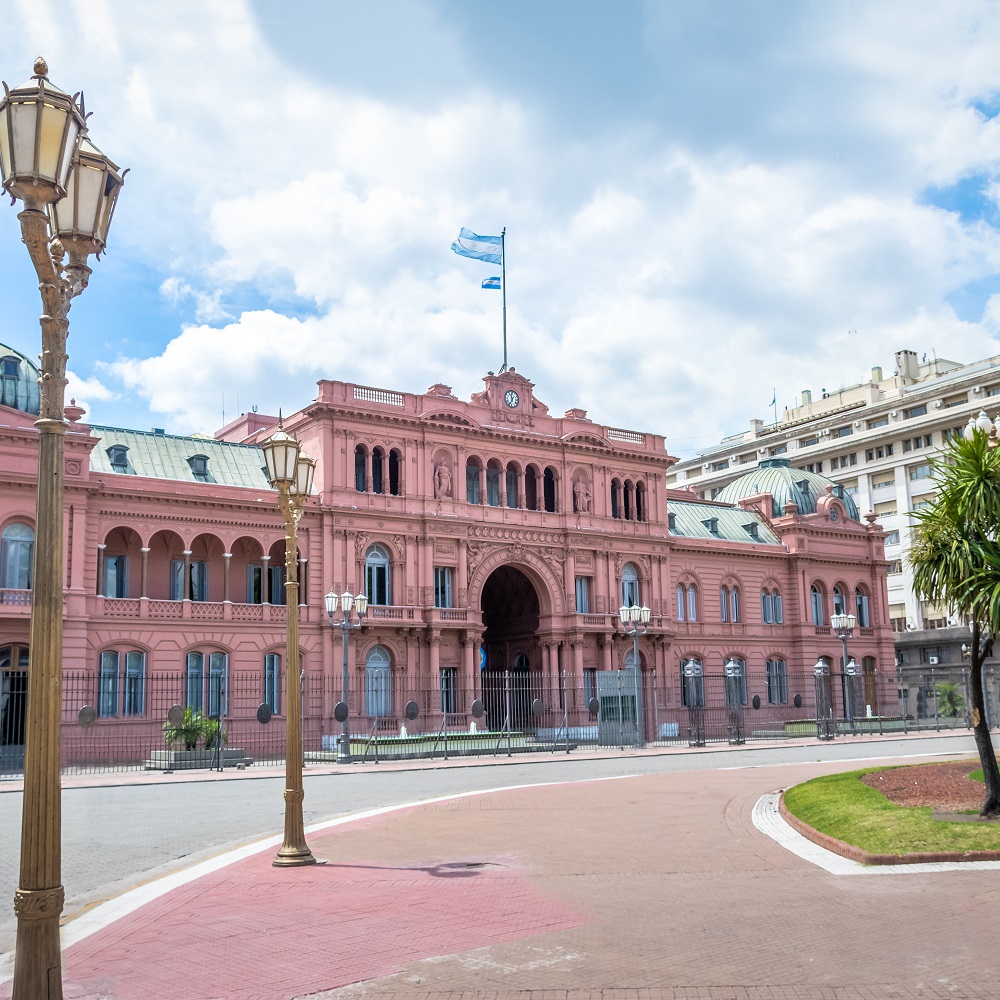
Latin America’s Attitudes towards Russia’s War in Ukraine
by Maria Puerta Riera
In Latin America, Cuba, Nicaragua, and Venezuela are not alone in their support for Russia and its invasion of Ukraine. In many cases, support has been disguised as an interest in peace or a neutral stance towards the conflict, as seen in the cases of Colombia, Mexico, and Brazil. While we find manifold diplomatic approaches toward Russia and Ukraine in Latin America, the underlying motivations can be understood in terms of support or rejection. While a majority of nations reject the invasion, considering it a threat to territorial sovereignty and self-determination, others have been reluctant to place any blame on Russia. More broadly, there has been less of an ideological bloc and more of an anti-imperialist or anti-colonial sentiment, with a few exceptions, such as Gabrie Boric from Chile who has publicly repudiated Russia’s aggression against Ukraine. His opposition is a departure from other Latin American leftist leaders like Luiz Inácio Lula da Silva and Gustavo Francisco Petro who have been more critical of Volodymyr Zelensky than Vladimir Putin. However, we can still identify three distinctive approaches to the crisis: 1) geopolitical, 2) economic, and 3) historical. The region has a keen interest in keeping its doors open to Russia. BRICS members like Brazil have managed to maintain their alleged neutrality in the pursuit of peace—even as President Lula has explicitly supported Putin—while simultaneously protecting their economic interests. Others like Colombia and Mexico have shielded their unwillingness to condemn Putin’s invasion of Ukraine in an apparent push for peace. On the economic front, attitudes towards Russia are more tenuous given that Russia’s capability for foreign direct investment has been significantly reduced by the brunt of the war, along with the impact of the economic sanctions that followed their aggression. To be sure, Russia’s investments in the region have been winding down for some time, with a decreasing profile in areas such as energy, oil, and gas, as well as software and IT. However, the economic ties are more significant in the cases of Cuba, Nicaragua, and Venezuela—where they are joined more by their subjection to economic sanctions, and therefore the necessity to evade the consequences of economic isolation. There are specific areas key to this alliance: Russian fertilisers, along with oil and diesel, are critical to bypassing Western sanctions. Meanwhile, historical ties are more consequential than is commonly understood. Misinterpretations of Russia’s Soviet past by leftist-governed Latin American countries and longstanding social and cultural commonalities partially explain the continued support from diverse leaders such as Lula and Jair Bolsonaro in Brazil. These ties, rooted in shared anti-colonial sentiments and cultivated over decades, and regardless of ideological shifts, illustrate Russia’s multifaceted regional influence. This context underscores the fact that Russia’s regional impact transcends ideological lines, with both left and right-wing governments either explicitly supporting Russia or criticising Ukraine’s NATO aspirations to justify Russia’s aggression. The return of Donald Trump to the White House has prominent leaders of the Latin American left aligning with the new administration, resulting in significant consequences for the region. The new US administration’s criticism of Kyiv resonates with positions held by Brazil, Mexico, Colombia, Cuba, and Nicaragua. Despite ideological differences, their alignment emerges from a mix of political affinities, geopolitical strategies, and historical connections. Putin’s explicit defiance of Donald Trump’s negotiation efforts raises questions about Latin America’s influence over the conflict, largely due to its initial reluctance to adopt a decisive stance against Putin. The lonely voice condemning Putin’s war of attrition continues to be Chilean President Gabriel Boric, in stark contrast to Lula DaSilva and Gustavo Petro, who remain in Putin’s corner, making it unlikely they can be viewed as honest brokers in a peace initiative. Trump’s policies have prompted Brazil and Colombia to voice limited concerns about US plans for Ukraine, although still refraining from outright condemnation of Russia. This stance appears less a genuine support for Ukraine and more an opposition to US involvement in peace processes, even blaming Ukraine as partially responsible. Meanwhile, ideology alone has proven insufficient to prompt unified condemnation of Russia or widespread support for Ukraine in Latin America. Previous efforts by the Biden administration to secure regional military assistance for Ukraine were met with firm rejection and reluctance. This distancing, interpreted as tacit support for Russia, contributes to concerns about increasing authoritarian tendencies in the region, reflecting a diminished commitment to emerging democracies in crisis. Effectively abandoned by the international community, Ukraine faces negotiations with nations seeking its valuable earth minerals in exchange for protection, essentially framing it within a debt relief context. The absence of significant Latin American critique of this neocolonial approach underscores a troubling shift where sovereignty and self-determination appear increasingly disposable, contingent upon geopolitical interests and contexts. Maria I. Puerta Riera is a Visiting Professor of Political Science at Valencia College in Orlando, FL., where she teaches U.S. Government and International Politics. She holds a PhD. in Social Sciences, with her research focusing on the crises of democracies in Latin America. She has a special interest in Venezuela, Cuba, and Nicaragua, and is currently working on the effects of the illiberal regimes of China and Russia and their use of sharp power in the region. This article is published under a Creative Commons License and may be republished with attribution.









